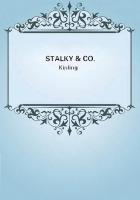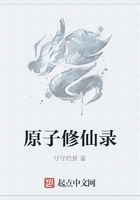I saw that he expected to be further questioned concerning his visit, and I saw too, with the keen perception of awakened jealousy, or alarmed self-esteem--or by whatever name I ought to call it--that he rather shrank from that impending scrutiny, and was no less pleased than surprised to find it did not come. Of course, I was burning with anger, but pride obliged me to suppress my feelings, and preserve a smooth face--or at least, a stoic calmness throughout the interview. It was well it did, for, reviewing the matter in my sober judgment, I must say it would have been highly absurd and improper to have quarrelled with him on such an occasion: I must confess too that I wronged him in my heart: the truth was, he liked me very well, but he was fully aware that a union between Mrs. Huntingdon and me would be what the world calls a mesalliance; and it was not in his nature to set the world at defiance;--especially in such a case as this, for its dread laugh, or ill opinion, would be far more terrible to him directed against his sister than himself. Had he believed that a union was necessary to the happiness of both, or of either, or had he known how fervently I loved her, he would have acted differently; but seeing me so calm and cool, he would not for the world disturb my philosophy; and though refraining entirely from any active opposition to the match, he would yet do nothing to bring it about, and would much rather take the part of prudence, in aiding us to overcome our mutual predilections, than that of feeling, to encourage them. `And he was in the right of it,' you will say. Perhaps he was--at any rate, I had no business to feel so bitterly against him as I did; but I could not then regard the matter in such a moderate light; and, after a brief conversation upon indifferent topics, I went away, suffering all the pangs of wounded pride and injured friendship, in addition to those resulting from the fear that I was indeed forgotten, and the knowledge that she I loved was alone and afflicted, suffering from injured health and dejected spirits, and I was forbidden to console or assist her--forbidden even to assure her of my sympathy, for the transmission of any such message through Mr. Lawrence was now completely out of the question.
But what should I do? I would wait, and see if she would notice me--which of course she would not, unless by some kind message intrusted to her brother, that, in all probability, he would not deliver, and then--dreadful thought!--she would think me cooled and changed for not returning it--or perhaps, he had already given her to understand that I had ceased to think of her! I would wait, however, till the six months after our parting were fairly passed (which would be about the close of February), and then I would send her a letter modestly reminding her of her former permission to write to her at the close of that period, and hoping I might avail myself of it, at least to express my heart-felt sorrow for her late afflictions, my just appreciation of her generous conduct, and my hope that her health was now completely re-established, and that she would, some time, be permitted to enjoy those blessings of a peaceful, happy life, which had been denied her so long, but which none could more truly be said to merit than herself,--adding a few words of kind remembrance to my little friend Arthur, with a hope that he had not forgotten me, and, perhaps, a few more in reference to by-gone times--to the delightful hours I had passed in her society, and my unfading recollection of them, which was the salt and solace of my life,--and a hope that her recent troubles had not entirely banished me from her mind.--If she did not answer this, of course I should write no more: if she did (as surely she would, in some fashion) my future proceedings should be regulated by her reply.
Ten weeks was long to wait in such a miserable state of uncertainty, but courage! it must be endured;--and meantime I would continue to see Lawrence now and then, though not so often as before, and I would still pursue my habitual enquiries after his sister--if he had lately heard from her, and how she was, but nothing more.
I did so, and the answers I received were always provokingly limited to the letter of the enquiry: She was much as usual: She made no complaints, but the tone of her last letter evinced great depression of mind:She said she was better:--and, finally:--She said she was well, and very busy with her son's education, and with the management of her late husband's property and the regulation of his affairs. The rascal had never told me how that property was disposed, or whether Mr. Huntingdon had died intestate or not; and I would sooner die than ask him, lest he should misconstrue into covetousness my desire to know. He never offered to show me his sister's letters now; and I never hinted a wish to see them. February, however, was approaching; December was past, January, at length, was almost overt few more weeks, and then, certain despair or renewal of hope would put an end to this long agony of suspense.
But alas! it was just about that time she was called to sustain another blow in the death of her uncle worthless old fellow enough, in himself, I dare say, but he had always shown more kindness and affection to her than to any other creature, and she had always been accustomed to regard him as a parent. She was with him when he died, and had assisted her aunt to nurse him during the last stage of his illness. Her brother went to Staningley to attend the funeral, and told me, upon his return, that she was still there, endeavouring to cheer her aunt with her presence, and likely to remain some time. This was bad news for me, for while she continued there, I could not write to her, as I did not know the address, and would not ask it of him. But week followed week, and every time I enquired about her she was still at Staningley.
`Where is Staningley?' I asked at last.













